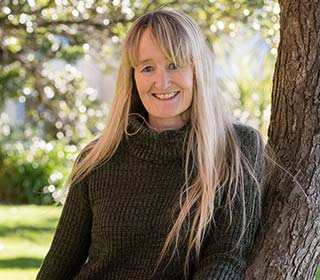Dr Katheryn Edwards
Lecturer in Psychology
School of Health & Wellbeing
07546 269104
Kedwards@marjon.ac.uk

Qualifications
- BPS Chartered Psychologist
- PhD in Psychology, Victoria University of Wellington, NZ
- MSc Energy Systems and Environmental Management, Caledonian University, UK
- PG Cert in Learning & Teaching Plymouth Marjon University
- BSc (Hons) Psychology, Victoria University of Wellington, NZ
- Graduate Diploma in Psychology, Victoria University of Wellington, NZ
- BA (Hons) Economics and Economic History, University of Warwick, UK
Teaching
I am module lead for a number of undergraduate and postgraduate psychology courses. As such my teaching covers a variety of topics across cognitive psychology, developmental psychology, research methods and study skills. Key duties include lecturing and assessment-setting in line with module learning outcomes. Other responsibilities involve pastoral care (I am a Mental Health First Aider), post-graduate supervision, and collaborating with colleagues to adapt and improve student engagement and success. I am also a peer-reviewer for the Cognition journal.
Research
My primary research interest is Theory of Mind. Traditional false belief tasks indicate that belief reasoning emerges from about four years of age, whilst non-verbal measures infer that infants and toddlers are sensitive to others’ false beliefs. One explanation of these contradictory findings is that infants are capable of psychological reasoning, but direct verbal testing fails to reveal this due the demands placed on executive functioning. An alternative, two-systems account, suggests that infant success in spontaneous tasks is due to a low-level system, which allows efficient processing of belief-like states. Previously, the debate has focused on measuring eye-gaze in one-shot tasks. In a departure from this, the main thrust of my research was to provide new and converging behavioural data from adult samples to tease apart the two-system account from rival accounts.
Publications
Brox, B. W., Edwards, K., Buist, N. A., & Macaskill, A. C. (2021). Investigating food preference in zoo‐housed meerkats. Zoo Biology.
Low, J., Edwards, K., & Butterfill, S. (2020). Visibly constraining an agent modulates observers’ automatic false-belief tracking. Scientific Reports, 10,1, 1-12.
Edwards, K., Maymon, C., Peloquin, C., Sivanantham, S., & Low, J. (2020). False belief understanding: On cognitive development, cognitive competence & cognitive systems. In S. Hupp, & J. Jewell (Eds.). The Encyclopedia of Child and Adolescent Development. Wiley. doi.org/10.1002/9781119171492.wecad141
Edwards, K., & Low, J. (2019). Leve1 2 perspective-taking distinguishes automatic and non-automatic belief-tracking. Cognition, 193. doi.org/10.1016/j.cognition.2019.104017
Poulin-Dubois, P., Rakoczy, H., Burnside, K., Crivello, C., Dörrenberg, Edwards, K.,…. Ruffman, T. (2018). Do infants understand false beliefs? We don’t know yet – A commentary on Baillargeon, Buttelmann and Southgate’s commentary. Cognitive Development, 48, 302-315. https://doi.org/10.1016/j.cogdev.2018.09.005
Low, J., & Edwards, K. (2018). The curious case of adults’ interpretations of violation-of-expectation false belief scenarios. Cognitive Development, 46, 86-96, https://doi.org/10.1016/j.cogdev.2017.07.004
Edwards, K., & Low, J. (2017). Reaction time profiles of adults’ action prediction reveal two mindreading systems. Cognition, 160, 1-16. https://doi.org/10.1016/j.cognition.2016.12.004
Invited Symposium Panelist: “Characteristics of Efficient Mindreading in Uncharted Settings” at the International Convention of Psychological Science, Paris, France (2019).
Expert Membership of professional bodies
- Chartered Psychologist (British Psychological Society)
- Fellowship of the Higher Education Academy
- Graduate Student Affiliate of the Association for Psychological Science
- Member of the Society for the Teaching of Psychology
- Member of Psi Chi


